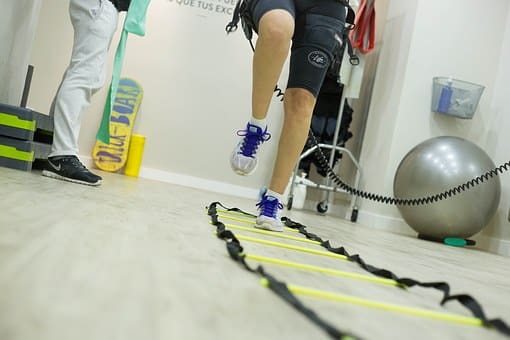3 Ways Physiotherapy Can Improve The Mental Health of Patients
There’s a larger fallout from injury and ailments than simply the physical impact they have on an individual. Whether an athlete sprains an ankle or tears an ACL or a middle-aged parent seeks professional help for chronic pain, the effects of an injury can often run deeper than the source of pain; it can also affect the person’s mental health.
Physiotherapists are in the unique position to rehabilitate patients so they feel both physically strong and mentally well. A sound body usually leads to a healthier mind and a more optimistic outlook generally makes the physical healing process not only quicker, but easier. That said, here are three ways that physiotherapists can help patients battle back from injury while improving their mental health.
Orthopaedic Supports and Braces
Many people assume that all athletes are cut from the same cloth and are so confident in their physical abilities that no injury can hold them back. It’s not true. Athletes, like the rest of us, are human and fall prey to doubts and anxiety, especially when it comes to sustaining an injury. In fact, injuries can derail an athlete’s promising season, career or push towards a goal simply by making them doubt their physical capabilities and making them hesitant to compete at the same, high level as before for fear of reinjuring themselves.
Physiotherapists can help an anxious athlete deal with these issues in a variety of ways, mainly through addressing the root cause of an injury and rehabilitating an athlete to their full strength. But for athletes whose mental is faltering, physiotherapists can also offer a physical aid that doubles as a psychological one as well; orthopedic supports and braces. Supports like a knee brace, compression gear or even athletic tape can add an extra layer of security to an athlete’s equipment and give them that mental boost they need to get back onto the playing field. Physiotherapists know the best supports for their patients and can be the ultimate resource for an athlete looking for the reassurance that is sometimes necessary to get back to business.
Weight Loss
Weight loss often leads to physical and mental health problems, such as chronic feet, knee, hip and back pain and depression. There are many cases when the pain of an injury can lead to inactivity and therefore weight gain, resulting in even more health concerns. It is a cycle that gets worse and worse and more painful for the individual, who suffers physically and mentally.
Physiotherapists have the ability to remedy this situation and help individuals lose weight in order to feel physically stronger and mentally healthier. By either targeting the root cause of pain or injury or prescribing a tailored exercise program to overweight individuals, physiotherapists can reverse the cycle of pain and weight gain and more pain. Physiotherapists can aid in helping people who are struggling with weight issues improve in physical areas such as proper balance and posture and can tutor patients in proper exercise technique, which not only helps the person become physically stronger and healthier, but also increases confidence in the patient. The combination of frequent and proper activity with weight loss and the removal of pain can do much to shape a positive mental outlook for overweight patients.
Improved Sleep Patterns
As with weight gain and obesity, sleep, or the lack of sleep, can be a vicious cycle that creates pain and mental health problems for many people. Chronic pain or an injury can lead to an interruption in normal and healthy sleep patterns, which can in turn lead to more health issues and a severe downturn in the mental health of an individual. Physiotherapists can assess abnormal sleep patterns and create a rehabilitation plan to aid in both the rehabilitation of pain and getting their patients back to normal rest, thereby improving their mental health.
On one end of the spectrum, physiotherapists should be able to connect pain that can cause a lack of sleep, such as headaches, to a lifestyle of a patient, such as bad posture at work, and tailor an exercise plan to combat these harmful routines. One the other end, poor sleeping habits can result in physical and mental health problems. Physiotherapists that recognize the importance of sleep and its root of some physical ailments are able to design a program for patients that includes massage, aerobic exercise and relaxation techniques (e.g. breathing) that can alleviate insomnia in a short time. All this adds up to fewer physical ills, injury and pain while also helping alleviate many of the mental health problems that are associated with a lack of sleep.









My brother is thinking about going to physiotherapy and I wanted to learn more about this treatment. I had no idea that it could improve sleep patterns through mental health. He should go for this because it will be very beneficial for him.
I was in an accident and my shoulder still feels stiff from it. I didn’t know that physiotherapy could help out with that so much! It would be great to have a professional help me figure out what I need to do to get my shoulder working like normal again.
I like that you mentioned that weight loss by physiotherapy can help people feel stronger and mentally healthier. I want to lose weight, but I have an existing injury. Using physiotherapy could help me kill two birds with one stone! I will have to give it a try!